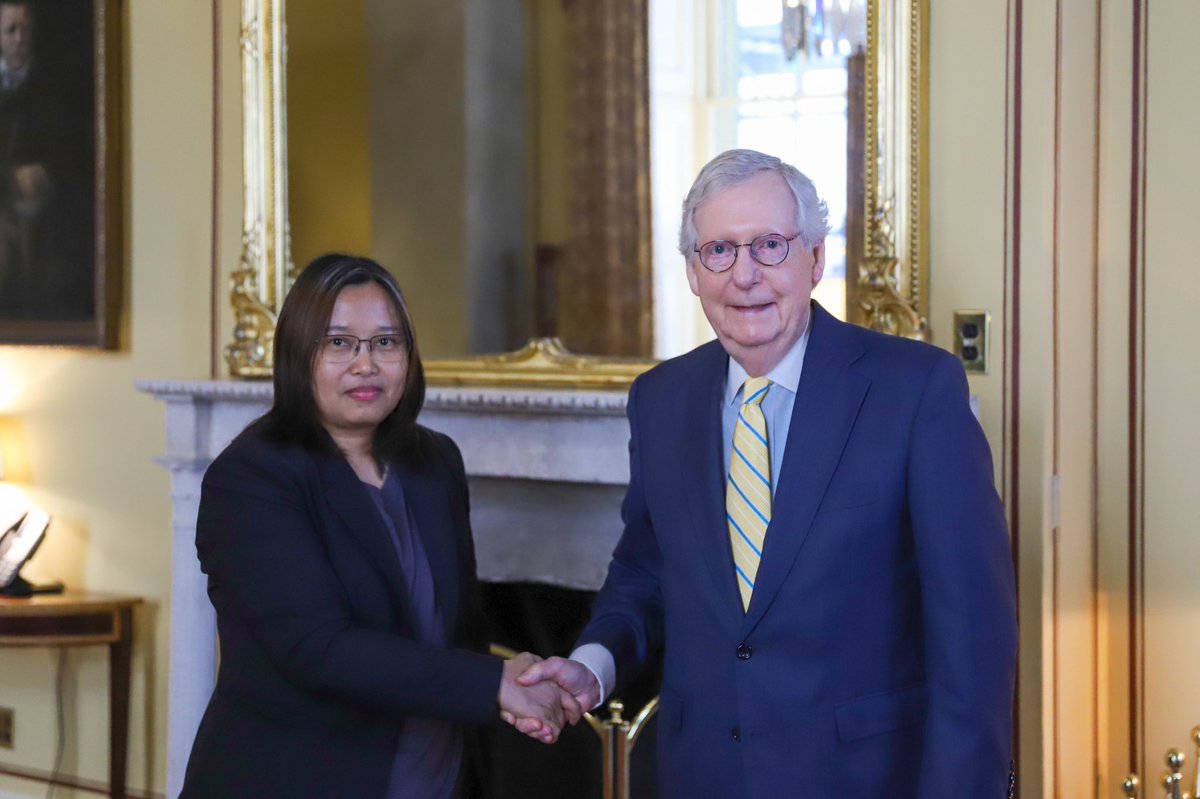NUG foreign minister, Zin Mar Aung, met with US Senate minority leader, Mitch McConnell, during her trip to Washington DC last week.
“It was an honor to meet with [McConnell] to discuss the ongoing violent campaigns of the military junta in Myanmar. We exchanged notes and agreed on the importance of ongoing support from the US and other countries for Myanmar’s resistance struggles and movements,” she tweeted yesterday.
Mitch McConnell has long been an opponent of the Burmese military and continued to show support for State Counselor Aung San Suu Kyi even after her international reputation was tarnished due to the Rohingya Genocide.
However, questions arose amongst Burmese activists over the senator’s commitment to the country’s revolutionary democratic movement after he failed to show support for the a version of the 2021 Burma Act currently awaiting to be discussed in the US Senate — the proposed legislation would allow the US government to take stronger action against the Burmese military yet, despite bipartisan support, still lacks Republican co-sponsors.
The act passed the US House of Representatives yet must be approved by the Senate before being signed into law by President Biden.
Zin Mar Aung also revealed in a tweet that she had met US senators Jeff Merkley and Ed Markey, discussing what she called “current challenges” as well as possible sanctions against Myanma Oil and Gas Enterprise (MOGE), a key generator of foreign cash reserves for the junta.
Activists have called on the international community to impose sanctions on MOGE after a European Union embargo in February.
Senators Merkley and Markey advocated putting sanctioning on MOGE since the military coup and have pressured President Biden to take stronger action against the military regime along with other senators. The senators are also among the co-sponsors of the Burma Act.
The meetings come after Zin Mar Aung met with US State Department officials and prominent members of the Biden administration after coming to Washington D.C. to observe the US-ASEAN Summit. She also held high-profile informal discussions with Malaysia’s foreign minister, Saifuddin Abdullah, who has emerged as a key proponent of talks between the bloc and the NUG.
It is unknown what further actions the US government will take to support Burma’s democracy movement and weaken the military regime, while sources close to the administration say that the country is reluctant to provide overt support to resistance groups for fear of potentially falling into a proxy conflict with Burma’s neighbors.



